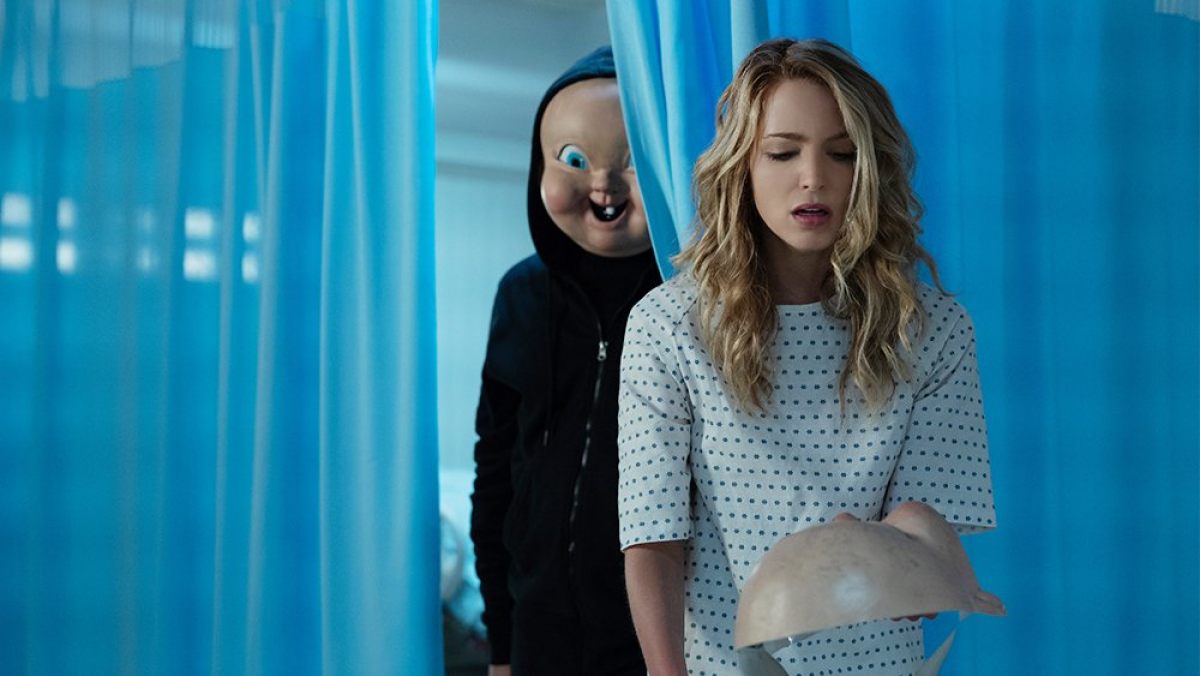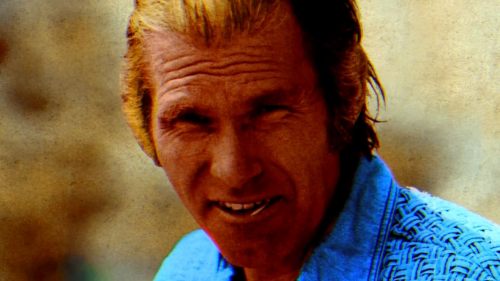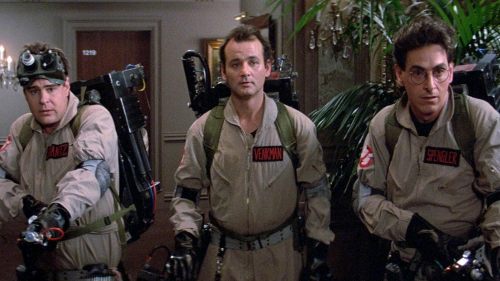Collins’ Crypt: Slasher Sequels Aren’t Easy To Pull Off
Last week I had the pleasure of moderating a Q&A with Todd Farmer and Kerr Smith for a 10th anniversary screening of My Bloody Valentine 3D, and naturally the planned sequel we never actually got came up. For those whose memories don't include the box office results of decade old slasher movies, MBV3D was a pretty big hit ($100m worldwide on a $15m budget), and given that the film ended on a shot of its killer walking away from the crime scene, a followup should have been inevitable. Alas, at that time Lionsgate was undergoing management change-ups and looking to reduce its horror output, so despite the film's success it never got a sequel (yet; both men and director Patrick Lussier are still up for making one, for what it's worth!), following the fate of the original, which was also a one and done despite being a fan favorite and producing strong returns on home video and cable.
But there's a silver lining for ol' Harry Warden - no one ever had to figure out what to do with him for a second installment, and in turn no fan ever had to walk away disappointed that "My Bloodier Valentine" didn't live up to the movie they imagined in their head after they saw the original. And he's not alone in this single-slasher purgatory; there are really only a handful of masked slashers who ever got the chance to come back for followups. For every Jason Voorhees or Ghostface there are a dozen like Harry (or Madman Marz, or Jeremy Melton, or my man Killer from Final Exam) who have to stay on the sidelines while their more popular peers get all the toys and posters and - yes - more chances to entertain dummies like me.
Given the mercenary existence of slasher movies, it'd be easy to say that the films that don't have sequels just didn't make enough money for anyone to bother, but that's obviously not entirely true. In addition to My Bloody Valentine, the Friday and Elm Street reboots from Platinum Dunes both made lots of dough but never got sequelized (nor did their original incarnations' even more successful 2003 team up for that matter), and even in the '80s we had films like House on Sorority Row (which grossed $10m on a budget of under $500k) that were left solo until their inevitable remakes. Sometimes rights issues gum things up, or the producers fail to get a followup mounted in time and everyone just kind of moves on, and sometimes - believe it or not - everyone agrees that there's just no story left and a sequel would be pointless even by these lowered standards.

By resting on their blood-streaked laurels, they get to avoid the biggest hurdle: figuring out exactly what would make a satisfying sequel for the audience who made the first one a hit, while also hopefully enticing new folks to check it out to cover the difference, since obviously not everyone who walked out liked it enough to want a sequel in the first place. You can't just make the same movie again - the audience will revolt (or think it's a remake), so changes are in order, and that's where a big decision has to be made. Do you bring back the survivors and hope the audience doesn't question the unbelievable odds that another killer would come after them? Do you revive the killer and set him loose on a new group and/or new area? Do you drop everything and focus on a demented mask maker trying to turn every kid's head into snakes? No matter what, some fans will be happy that their favorite element was revived/expanded for a followup, while others will be annoyed that *their* favorite thing was reduced or dropped entirely. You can even expand out of horror and the rule will not be broken: someone, somewhere, will find the sequel to be vastly inferior. Yes, even Empire Strikes Back and Godfather II have their detractors.
But it seems the horror genre has a harder time making that lightning strike twice than most other genres (comedy seems to be the only one with a spottier track record). Even if the movie works, sometimes people just don't show up for whatever reason, and there's no real way to definitively explain it. The most recent example is Happy Death Day 2U, which scored favorable reviews with critics and audiences, but failed to sell the expected number of tickets over its all important opening weekend, becoming the latest victim of the fact that there really is no guaranteed secret formula for these things. And writer/director Christopher Landon had an even harder nut to crack, because unlike Halloween or Friday the 13th, the original Happy Death Day was centered around a "gimmick" as opposed to a standard slasher plot. While the film offered a masked slasher and whodunit mystery, plus a number of chase and kill scenes, the hook was its "Groundhog Day" plot device, in which our Final Girl woke up on the same day every time she got killed, seemingly stuck in the loop until she solved the mystery.
That 2017 film was a surprise hit ($125m worldwide), but even more surprising was how well done it was. Even with everyone's death being erased by the time loop, it still gave the requisite kill scenes we demand of these things, allowing for just about every character to have their turn being offed by Babyface as they would in a normal body count flick, making it a solid slasher at a time where we hadn't gotten ANY such films at our multiplexes in years, let alone good ones. But it also pushed a lot of other buttons: it gave a sweet romance between the two leads, it was a solid coming of age kind of story as Tree (Jessica Rothe) grew from selfish sorority girl into someone we love over the course of her many deaths, and it was just a lot of FUN, plain and simple. So what do you do for a followup? As I said, a sequel has to find that thin line between "too similar" and "too different" in order to entice every fan of the original to buy a ticket again - and it seems in HDD2U's case, they didn't quite hit that mark.

Don't get me wrong - I enjoyed the film for the most part. Rothe continues to make me wonder why it is she's not starring in every movie on the planet, the new time loop stuff was clever, and it even made me cry at one point due to an unexpected emotional component. But I was a bit taken aback by how much Landon minimized the slasher element this time around, to the point where the movie would go long stretches without utilizing it at all, and I know I'm not alone on that. Once Tree finds herself back in the time loop again, she figures she can at least get back out of it quickly enough by confronting her roommate straight away - but she's NOT the killer this time around, as Tree has somehow woken up on her birthday in a parallel dimension, where everything is similar but just enough "off" that there is a new killer and some other complications to deal with. But she doesn't seem all that interested in finding out who the new killer is; most of the movie revolves around some quantum flux capacitor doohickey that Ryan (Carter's bad-timing roommate) built and is quickly identified as the source of the time loop in the first place.
So that, and not stalk n' slash stuff, is primarily the movie's focus. Personally I didn't care how/why she got caught in a loop any more than I ever cared why Michael Myers wanted to kill Laurie Strode or why Jason could seemingly never be killed (or, more on point, why Phil Connors got stuck in his loop), but for the people that do crave such answers for whatever reason this sequel is definitely for you. Even her deaths aren't at the hands of Babyface most of the time - she offs herself repeatedly to reset the day, bring Ryan and his science lab pals up to speed again, and help them fix the machine before the college Dean shuts the experiment down (on the next day, hence the ticking clock that needs constant resetting) and traps her forever in this sideways world. Every now and then Babyface shows up and you're like "Oh right, him" but then he goes MIA again in favor of lengthy scenes with the painfully unfunny (to me) Dean.
The killer's minimized presence (with a shrug of a conclusion; it's not just Tree - no one seems particularly interested in the reveal when it finally happens) might be why the film failed to sell as many tickets this time around; the first one appealed to horror and comedy fans in equal measures, whereas this one seems geared all but exclusively toward the latter. And we're not hurting for this kind of content; in the past couple months we've had Halloween and Hell Fest to give us our body count thrills (with R ratings to boot) so there's just not as much of a draw for us "dead teenager" fans. Besides, even if that wasn't a concern, it's possible that folks just didn't want to have the sci-fi element over-explained (and it is; there are *multiple* scenes of people drawing diagrams to dumb the plot down for Tree/us) and opted to preserve the more existential theory that she simply needed to grow up. Perhaps if they took a page from the Final Destination series and gave this unexplained "power" to someone new and changed up everything else, there would have been more interest? It certainly wouldn't require knowledge of the first, another thing that might have dimmed HDD2U's box office returns - you have to go into the later Saw entries to find another horror sequel that was less welcoming to newcomers, as many of the sequel's payoffs and gags require a fresh memory of the original.

That said, even if the film was a huge hit those grumbles wouldn't entirely go away, as again, it's just really hard to please everyone with a slasher sequel. Halloween '18 may have made a gigantic amount of money, but there are still a number of fans who hate the idea of erasing all of the other sequels (again), and to this day there are some who hate Jason and think the original Friday the 13th was the best of the lot. I think both camps are out of their goddamn minds, but to each their own. Besides, despite my overwhelming love of the genre as a whole, I myself find myself disappointed with a lot of slasher sequels; one of the very few I think really comes close to the quality of the original was Scream 2, and I think that's mostly because they rushed it out so quickly there was no time to second-guess themselves. It's not as perfect as the first Scream, but it gave us the series' best chase (the film school), a solid whodunit mystery without reviving the same killers, and a sense of danger (RIP Randy) - elements that were missing from the inferior next two installments. Cold Prey II is another; it pulled a Halloween II and picked up immediately with the survivor at the hospital, and in some ways was even superior to the (quite good) original.
But those are rare exceptions, and it's interesting to think about what might have been when you consider the others from that era that disappointed both financially and - to most fans - creatively. Would I Still Know What You Did Last Summer measure up if they hadn't revived Ben Willis? Would Urban Legend 2 have been a hit if they stuck with Alicia Witt and Rebecca Gayheart, instead of a new cast and entirely different killer? And, shudder to think, is there someone out there who would have preferred that the guy in the ski mask came back for another Prom Night instead of (fan favorite) Mary Lou Maloney? I almost wish Happy Death Day 2U's time loop/alternate universe machine was real so we could maybe see what would have happened if their makers zigged instead of zagged. But it ultimately doesn't matter; I saw lots of happy people coming out of the screening (and even more raves online), and they'll be buying it on Blu-ray and recommending it to their friends long after its box office numbers have been forgotten. Because while there may be no perfect formula to make a sequel, there is another rule that never gets broken: ticket sales and reviews don't really matter in the long run, as long as these films find their way into the eyes and hearts of those who will love them just as they are.



